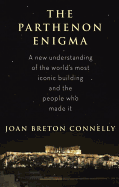 David Pilling (Get this book)
David Pilling (Get this book) A sweeping view of contemporary Japan portrays its complexities and potential for change. In his first book, Financial Times Asia editor Pilling draws on scores of interviews to investigate Japan's culture, politics, economics and social life as it tries to recover from a severe economic downturn that began in 1990. The author celebrates Japan's "social cohesion, a sense of tradition and politeness, a dedication to excellence and relative equality," but he acknowledges a counter view--that Japan is "an unredeemably xenophobic, misogynist society, hierarchical, shut off from new ideas, and unable to square up to its own history." The author's articulate and diverse interviewees--scholars and teenagers, housewives and politicians--vividly and passionately testify to Japan's cultural contradictions, ambitions and strategies for survival.--Kirkus








